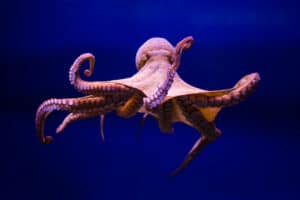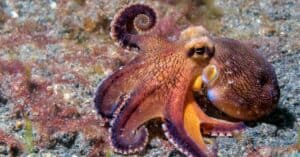Octopuses are fascinating creatures right from how they look to all the stories that revolve around them. There are so many amazing discoveries about the octopus, and many more may still be uncovered. For now, however, we give you 10 incredible octopus facts that you should absolutely be aware of.
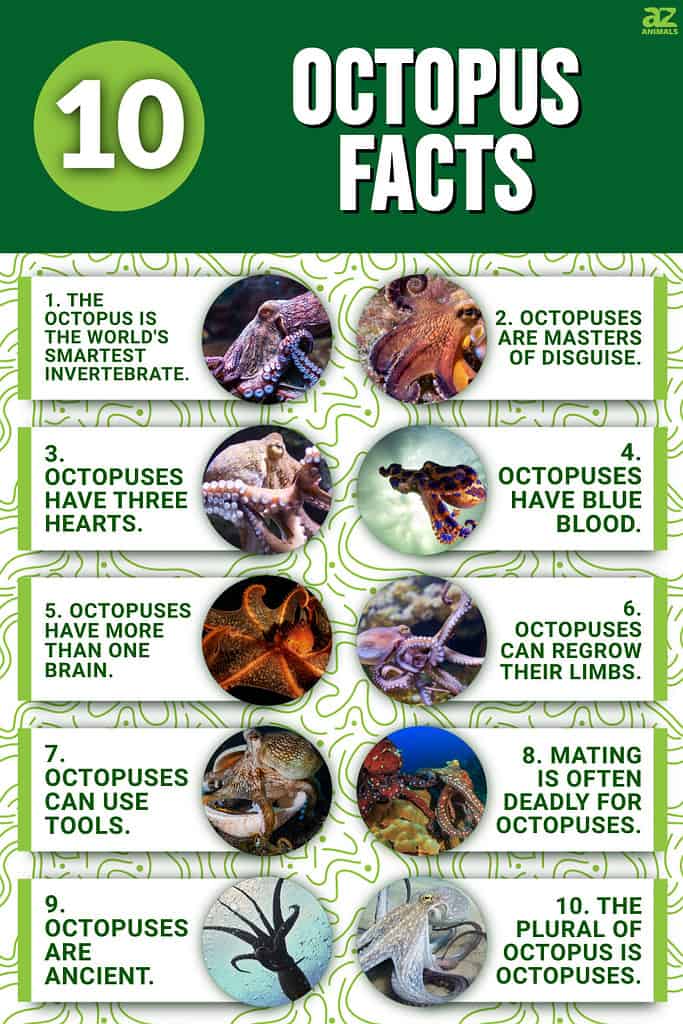
1. The Octopus Is the Smartest Invertebrate in the World
Experiments have shown that octopuses can open childproof bottles, find their way through mazes, distinguish one human from another, and engage in deceitful activities like pretending that they are moving rocks. The ability to do all these has earned them the reputation of being the smartest invertebrates in the world. Furthermore, they have the highest brain-to-body mass ratio of any invertebrate.
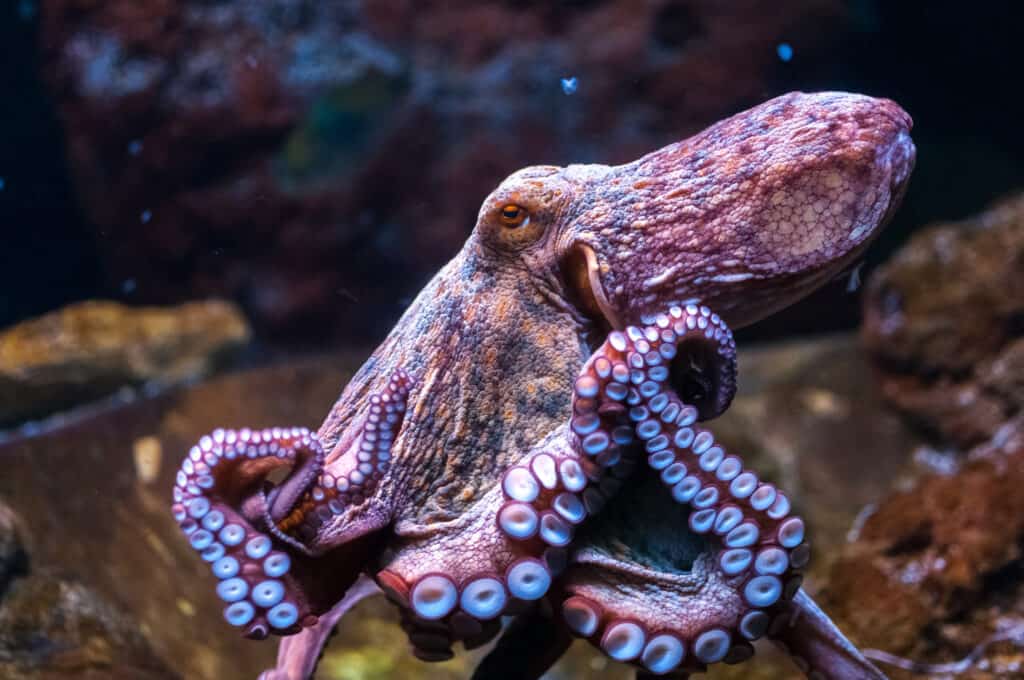
The octopus is well-known for its intelligence and has the highest brain-to-body mass ratio of any invertebrate.
©Olga Visavi/Shutterstock.com
2. Octopuses Are Masters of Disguise Thanks to Their Amazing Skin
As a result of their peculiar skin, octopuses can create the perfect disguise to avoid predators. In milliseconds, octopuses can alter their skin to take on several different textures, colors, and patterns that ensure that they look exactly like their surroundings. They literally become invisible looking exactly like rocks, sand, pebbles, plants, and even corals that may have different textures at once. There is also the mimic octopus that can morph its shape to look exactly like a less tasty marine animal to dissuade a predator from attacking it.
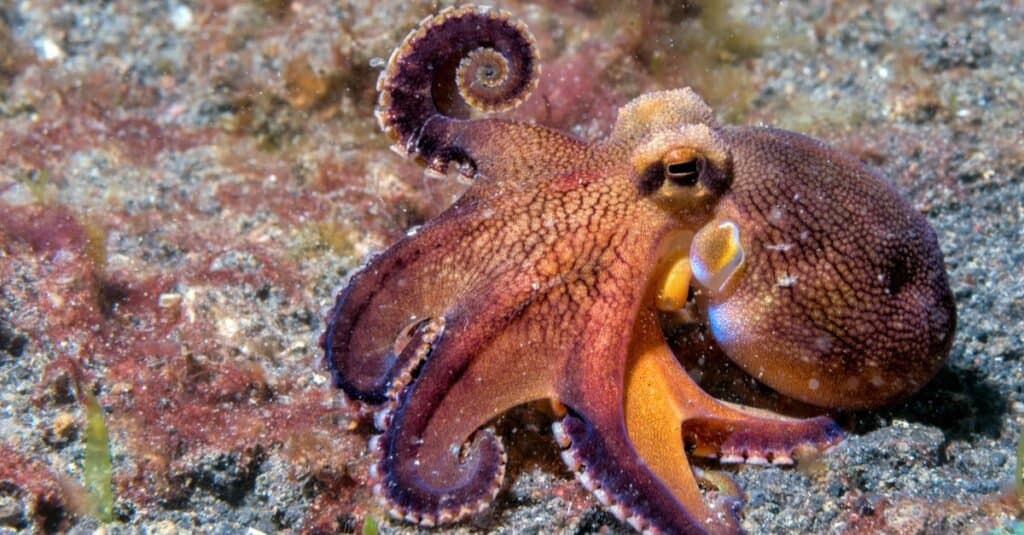
Octopuses are experts at camouflage and can alter their skin in milliseconds to blend into their surroundings.
©Andrea Izzotti/Shutterstock.com
3. Octopuses Have Three Hearts
These creatures possess three hearts, which have slightly different roles in their body. There are two peripheral hearts and these two pump blood past the gills where it picks up oxygen. The central heart then circulates this blood around the body to provide energy for muscles and other organs.
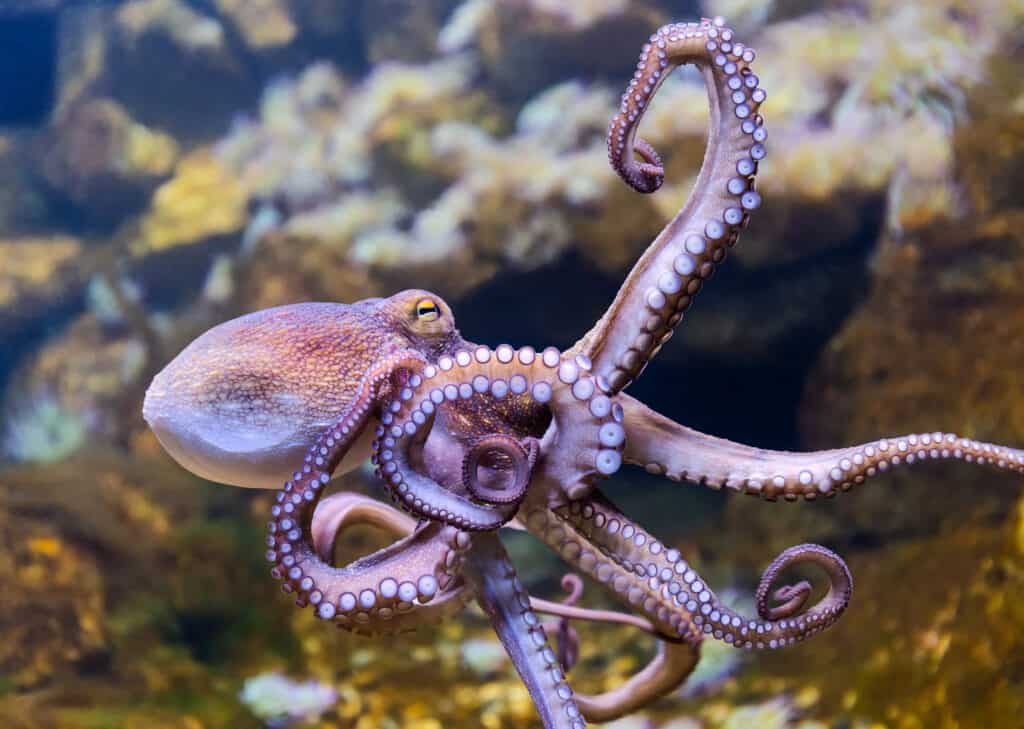
The octopus has a central heart that circulates blood around its body to provide energy for muscles.
©Henner Damke/Shutterstock.com
4. Octopuses Have Blue Blood
Octopuses bleed blue, not red like humans. Their blood has a blue hue because the protein, hemocyanin, that carries oxygen in their bodies contains copper rather than iron, which our (humans) hemoglobin possesses. In cold and low-oxygen conditions, copper-based protein is more efficient at transporting oxygen molecules, so hemocyanin is ideal for life in the ocean.
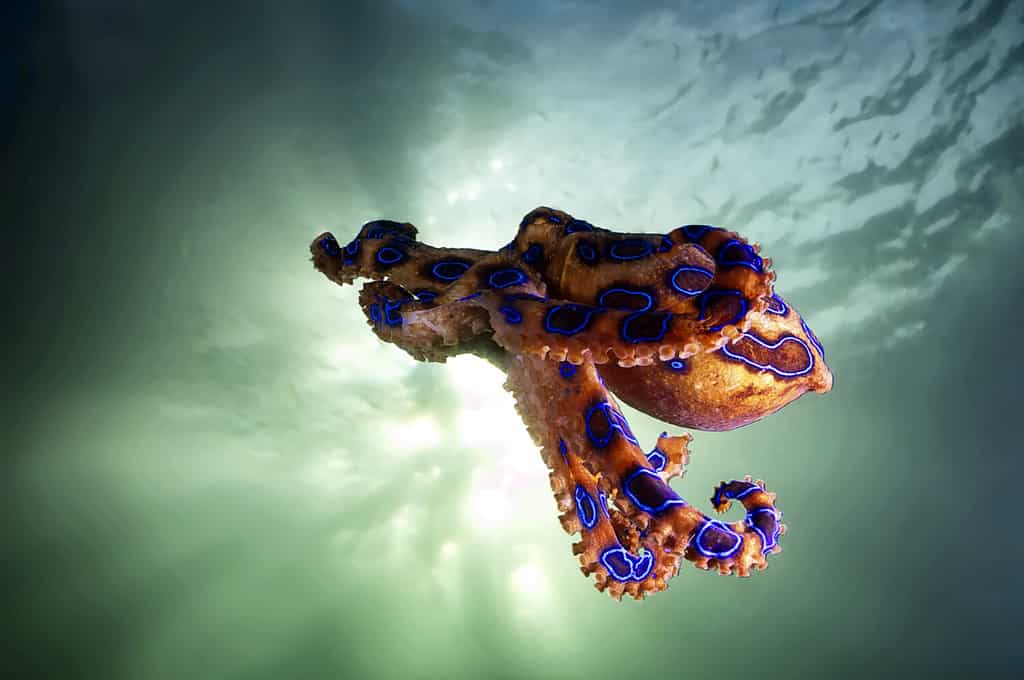
Octopuses’ blood is blue because the hemocyanin that carries oxygen in their bodies contains copper.
©YUSRAN ABDUL RAHMAN/Shutterstock.com
5. Octopuses Have More Than One Brain
We already mentioned that these are incredibly smart creatures and their brain system is also truly a marvel. Generally, octopuses are known to have nine brains. They have a central brain that is wrapped around the esophagus and contains about 180 million neurons. They also have brain neurons in each of their eight arms, that allow each of these arms to function autonomously and independently.
Therefore, the arms of octopuses have a mind of their own, even though the central brain can still exert full control and give general commands. One benefit of these for octopuses is that they can react very quickly in dangerous situations since each arm doesn’t need to communicate with the central brain to receive instructions.
To get more details on how the brain of the octopus works, read this.
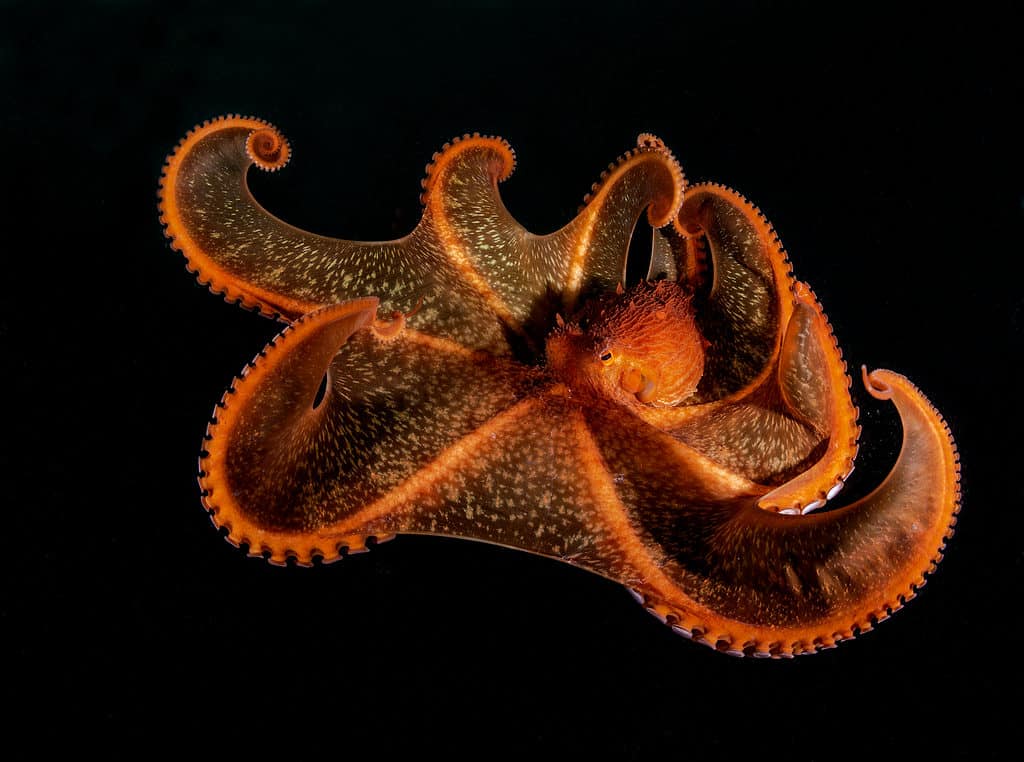
Each arm of an octopus literally has a mind of its own as there are brains in all eight arms.
©Shpatak/Shutterstock.com
6. Octopuses Can Regrow Their Limbs
Should any octopus lose its arms or tentacles, it can regrow it. The remarkable thing about this regeneration, however, is that the new arm is as good as ever, possessing its brain. Other animals that regenerate limbs often regenerate inferior versions, but not the octopus. It takes the octopus more than 100 days to fully regenerate a lost arm.
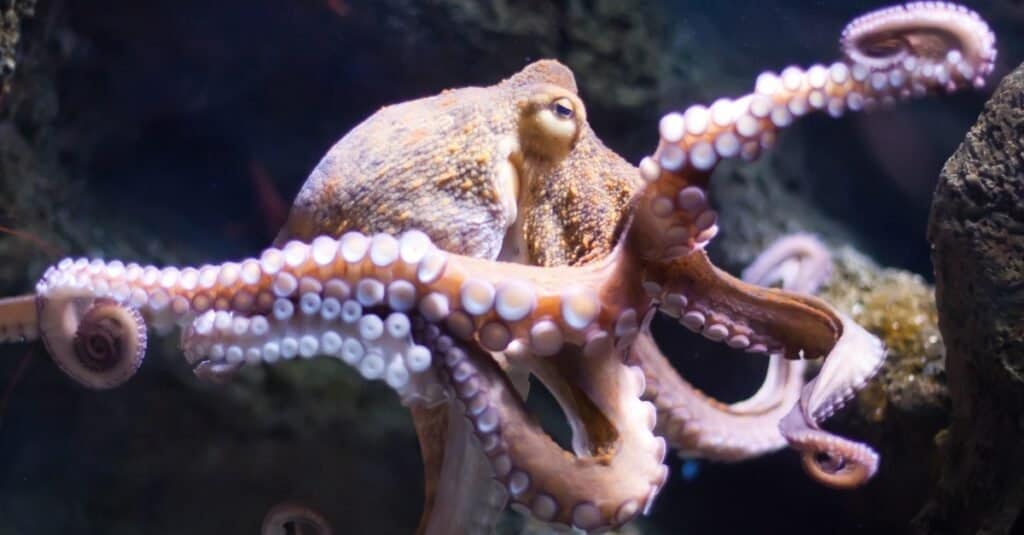
The octopus can fully regenerate a lost arm in 100-plus days.
©iStock.com/aurigadesign
7. Octopuses Can Use Tools
Generally, the use of tools is not common in the animal kingdom, with only a few animals known to do such. Interestingly, some species of octopus have been observed to make use of tools for multiple purposes. Some construct portable homes where they can seek refuge when a predator appears. An example will be an octopus that clamps coconut shells around itself at the appearance of a predator. They may also use some of their tools as barricades and defense systems for their permanent lairs. Some of the items that they may use as tools include stones, old bottles, coconut shells, sticks, etc. Lastly, some octopuses may also use these tools as weapons, flinging them at predators or other octopuses.
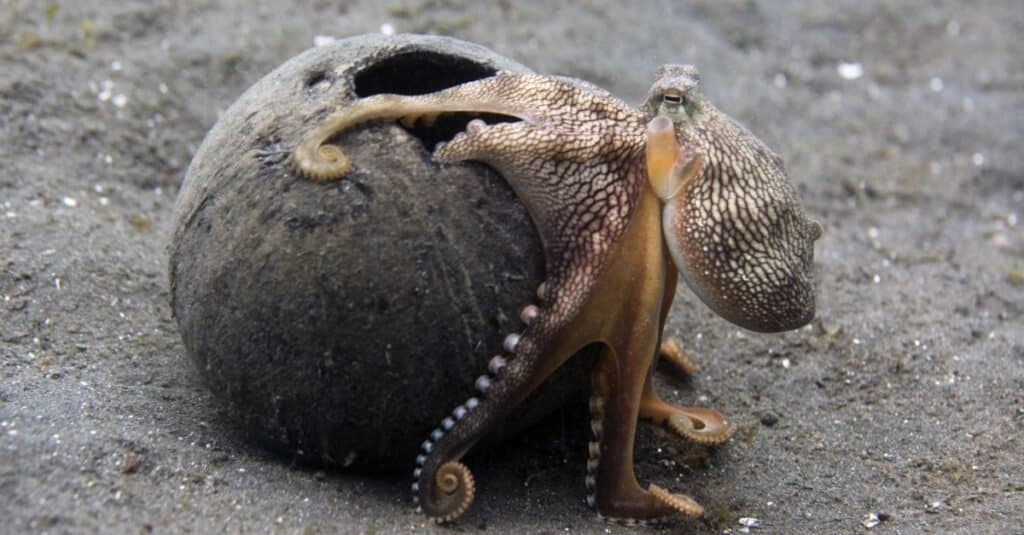
Octopuses can use coconut shells to help defend themselves against predators.
©Agarianna76/Shutterstock.com
8. Mating and Reproduction Are Usually Deadly Affairs for Octopuses
Virtually the entire reproduction process for these creatures is full of deadly events. A common instance of this occurs at mating when female octopuses may strangle their male partners with three arms and then eat them after coitus, usually because they are hungry and require a lot of food. Males that escape being eaten by the females usually stop eating after mating, which makes them weaker and less coordinated. As a result, they are easy prey for predators.
Death may also come in the form of self-sacrifice for female octopuses. After laying eggs, female octopuses spend so much time cleaning, protecting, and oxygenating these eggs without eating or doing anything else. Mothers may sometimes starve to death as a result of this behavior. One octopus that was observed doing this was the Graneledone boreopacifica (deep-sea octopus) that spent 53 months (four-and-a-half years) brooding over her eggs without eating anything. She slowly wasted away, and the last dive to her brooding spot revealed that the eggs had hatched but she was nowhere to be found.
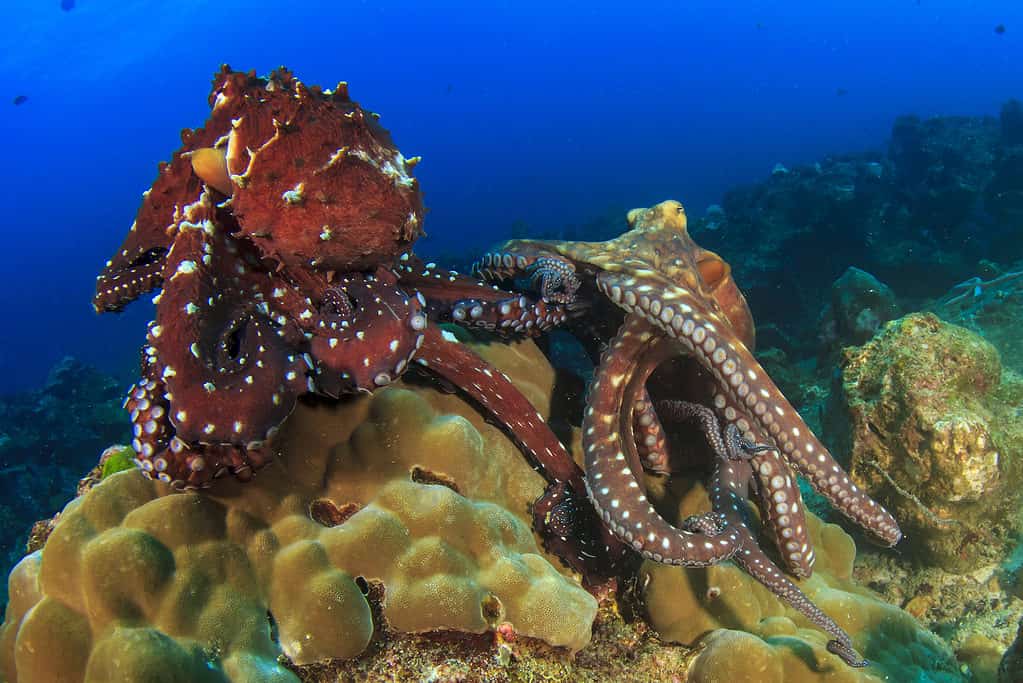
Female octopuses may strangle their male partners and then eat them after mating.
©iStock.com/richcarey
9. Octopuses Are Ancient
Recently, scientists discovered a fossil that places the oldest ancestors of octopuses at existing 330 million years ago. This is older than the dinosaurs and makes the octopus old. Very old. Detected in Montana, this fossil possesses 10 limbs, which is different from its modern counterparts, which have eight limbs.
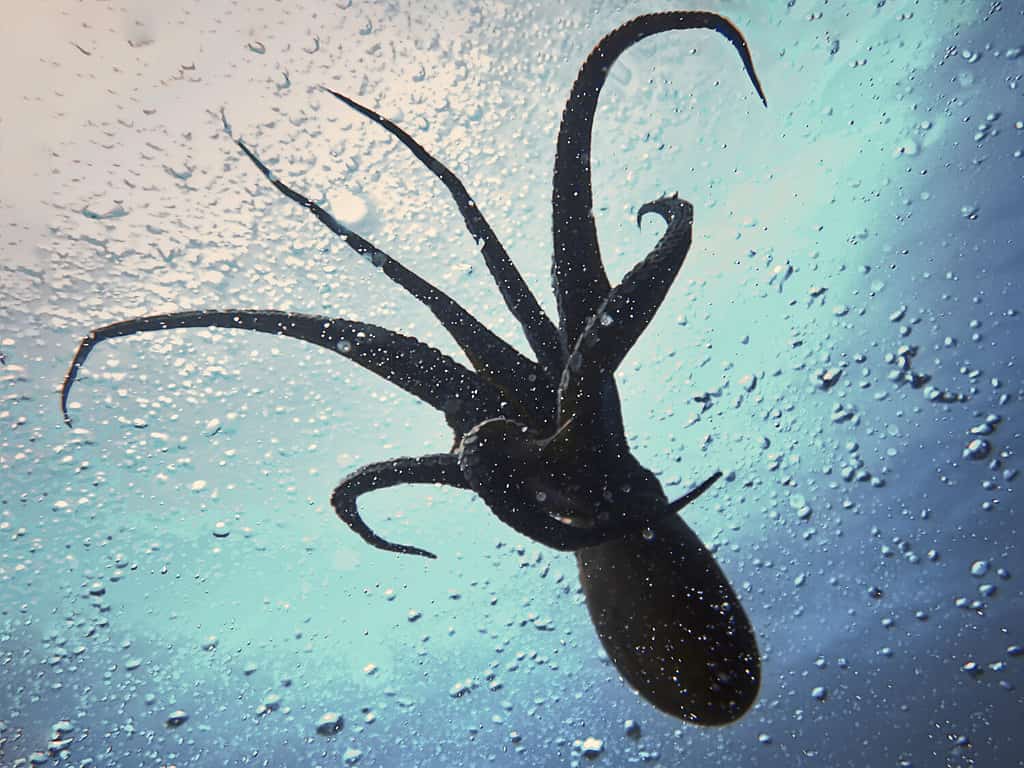
The oldest ancestors of octopuses existed 330 million years ago.
©Allexxandar/Shutterstock.com
10. The Plural of Octopus Is Octopuses
You may have figured that out, since we have used “octopuses” all through this article. However, just in case you thought we should have used “octopi,” English scholars have noted that the use of “octopuses” is also grammatically correct. This is because the word octopus derives from Greek, not Latin, so as a result, its plural should have “es.” Octopi may still be used, but octopuses is the preferred plural according to Merriam Webster.
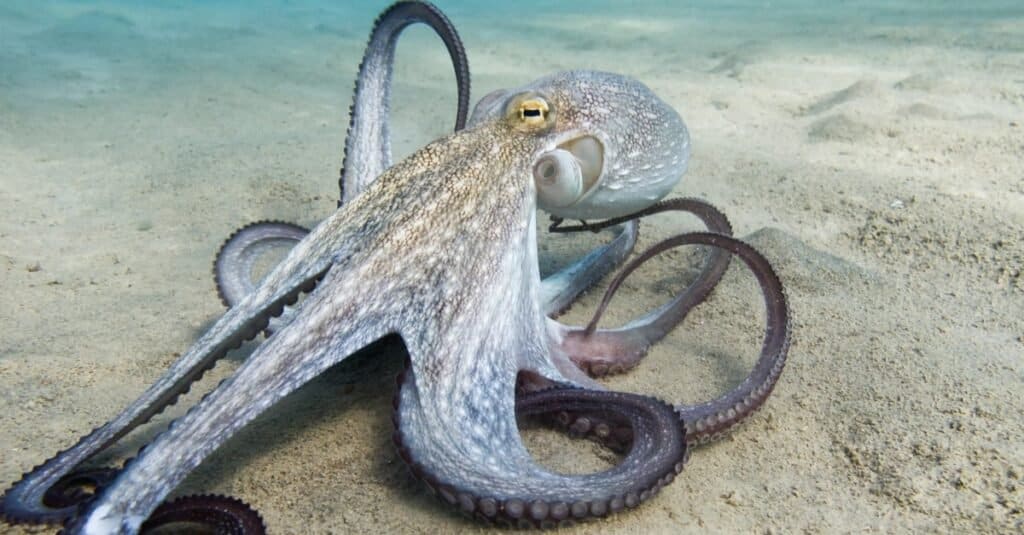
While many use the word” octopi” to refer to more than one octopus, “octopuses” is the preferred term.
©ennar0/Shutterstock.com
The photo featured at the top of this post is © iStock.com/izanbar
Thank you for reading! Have some feedback for us? Contact the AZ Animals editorial team.




